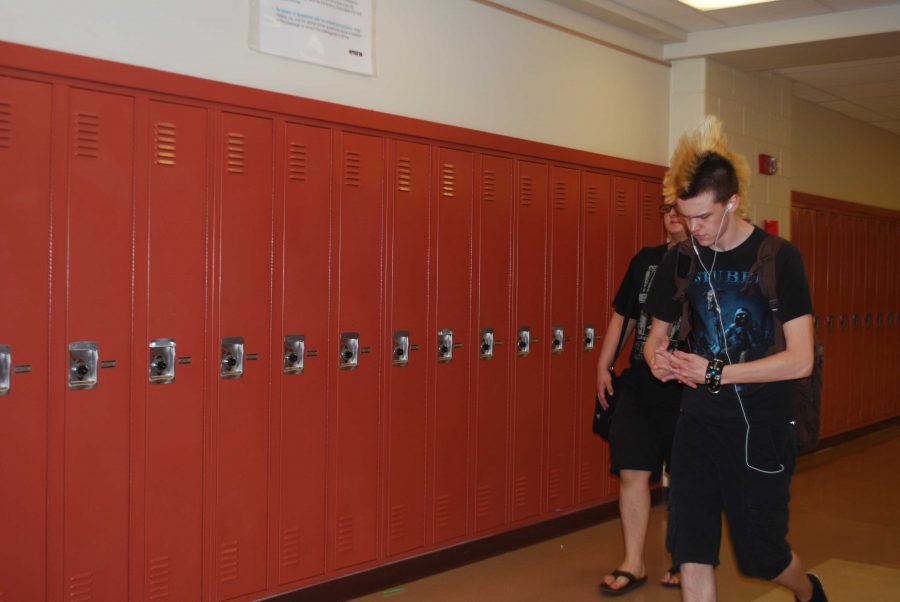
As of second semester, two new policies were adapted in the student handbook. On January 23, the deans of Huntley High School announced that the tardiness and unexcused absences policies would have new disciplinary actions starting second semester.
The new tardiness policy states that every four to six tardies from a single teacher will result in a one hour detention. Seven through 12 tardies will be two hours of detention, and 13 or more will be a three hour detention. This new policy is very different than the older one, which gave a one hour detention for four tardies, a two hour detention for five tardies, and an in-school suspension for six or more tardies.
“We want you to be in class as much as possible,” said Dean of Students Chris Duncan.
Being a couple seconds late to a class is not what the deans of students are concerned about. It is those who repeatedly arrive minutes late “who are trying to defy the system,” said Duncan.
Last semester resulted in approximately 750 in-school suspensions, according to Duncan.
If a student did not want to be in class, the old policy allowed them to miss class. After multiple times of doing so, it earned them time in an in-school suspension, which permitted them to not do anything all day and affected their grades.
“We are no longer allowing students to manipulate the system,” said Duncan. “Changing the tardiness policy allowed us to veer students away from giving students what they wanted; to be out of class.”
Not only has the tardiness policy changed, but the unexcused absence policy also follows this system. Two to six unexcused absences per period results in a one hour detention, 7 to 11 absences are two hour detentions, and so on.
Duncan admits that the new system might cause more disciplinary issues, but it is worth the chance to keep students in class more and out of detention.



Anonymous • Mar 21, 2012 at 5:29 pm
I honestly can’t see how this policy could ever meet its goal. Students “trying to defy the system” seem to have already demonstrated that disciplinary action won’t deter them. If they don’t want to be in class, they simply aren’t going to go to class. After all, what’s another detention to someone who’s already had ten?
Tardy/Unexcused Absence policy needs a shift in focus. Instead of thinking of better ways to punish those who don’t go to class, we need to focus on creating incentives for students to be in class in the first place. No matter how much power the administration wields, it is the students who must decided whether or not to go to class. All the staff can do is try to make education seem worthwhile enough to pursue.
Granted, such a policy would be much more difficult to create and implement than one centered around a stepping-up of discipline, but in the long run, it will prove much more effective; and with a little ingenuity and persistence, we could make it happen.